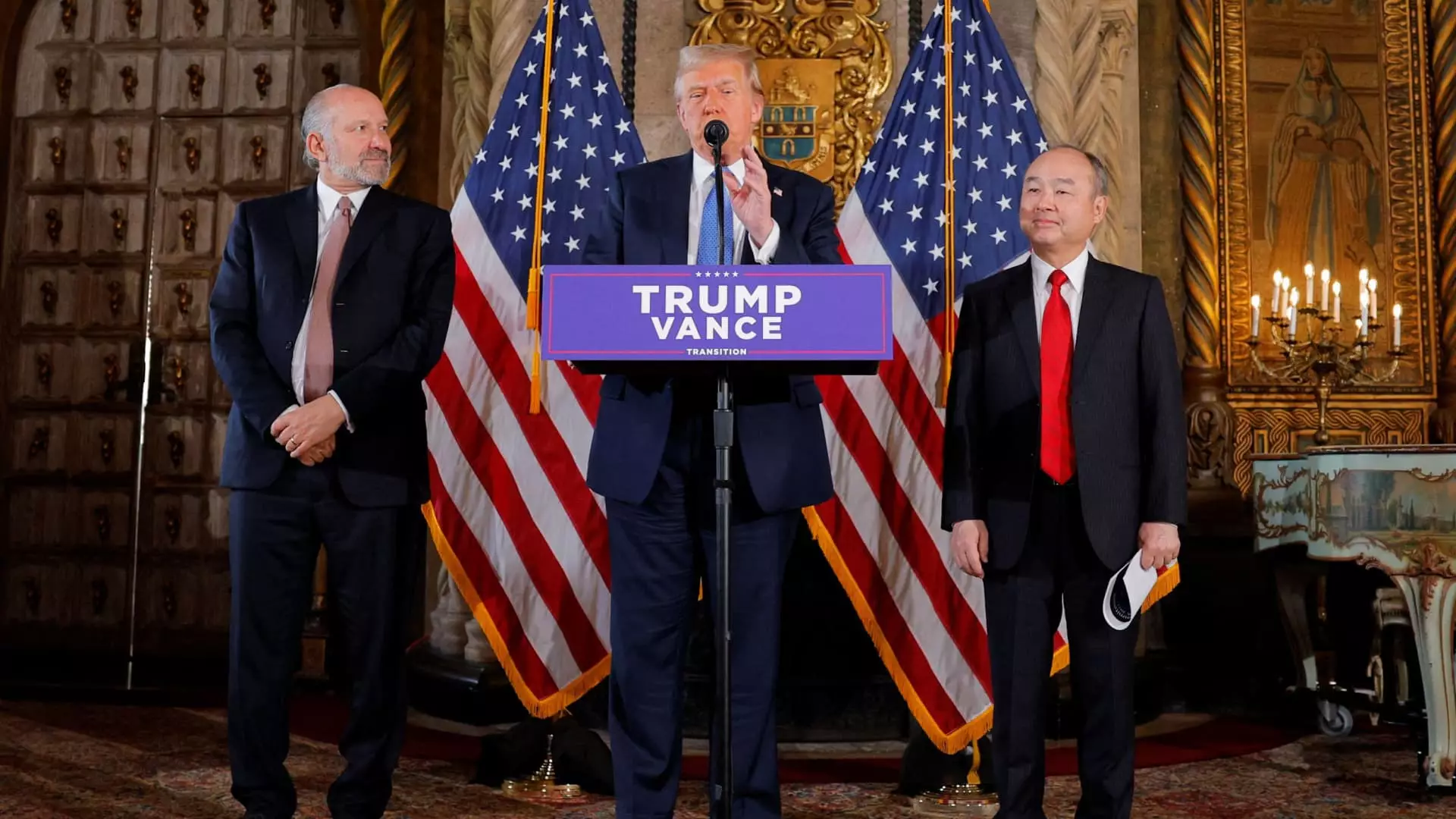In a significant development for the tech investment landscape, Masayoshi Son, the CEO of SoftBank, declared an extraordinary plan to funnel $100 billion into the United States over the next four years. This announcement coincided with his recent meeting with President-elect Donald Trump at Trump’s Mar-a-Lago resort in Florida. This bold investment commitment aims not only to bolster the U.S. economy but also to emphasize the growing importance of artificial intelligence (AI) and related technologies in shaping the future.
One of the most striking aspects of Son’s announcement is the goal of creating a minimum of 100,000 jobs in the U.S. With a strong focus on AI and technological infrastructure, this investment is positioned as a direct response to the evolving job market influenced by digital advancements. By harnessing the power of technology, SoftBank aims to drive innovation while providing employment opportunities for thousands of Americans, thus potentially reshaping local economies.
Son’s expression of confidence in the U.S. economy, highlighted by his statement regarding Trump’s presidency as a “double down” moment, underlines the belief among tech investors that substantial growth is imminent. His optimism echoes through the corridors of Silicon Valley, where technological advancements are often seen as gateways to economic expansion.
It’s important to note that this collaboration is not without precedent. In 2016, shortly after Trump’s initial election, SoftBank had already committed to investing $50 billion in the U.S., intending to generate 50,000 jobs. The historical context of these investments reveals a pattern of reliance on governmental leadership to foster economic growth through technology. Trump characterized the new $100 billion commitment as a reflection of increasing optimism about the nation’s prospects, establishing the investment as a critical moment in America’s economic trajectory.
SoftBank’s ambitious fund injection could draw from various channels, including the Vision Fund, capital projects, and even through its controlling stake in chipmaker Arm Holdings. However, it is crucial to recognize that not all funding will be novel. Some of it may come from previously announced initiatives, such as SoftBank’s recent $1.5 billion investment in OpenAI, the company behind the famed AI chatbot, ChatGPT.
This confluence of old and new funding raises questions about the actual financial implications of such strategies and their potential to create sustainable growth in the tech industry. Critics may point out that merely reallocating existing funds does not equate to a true leap in investment, prompting discussions on what ‘investment’ truly means in today’s rapidly evolving digital economy.
Masayoshi Son’s recent declaration of a $100 billion investment in the U.S. represents a bold vision aimed at significantly influencing the country’s job market and technological landscape. As artificial intelligence emerges as a central pillar of economic growth, the implications of this investment extend beyond immediate job creation. They foster broader discussions on how technology can drive innovation, reshape industries, and ultimately influence the global economy. As these investments unfold, stakeholders will be watching closely to see if they indeed translate into the anticipated economic momentum.


Leave a Reply